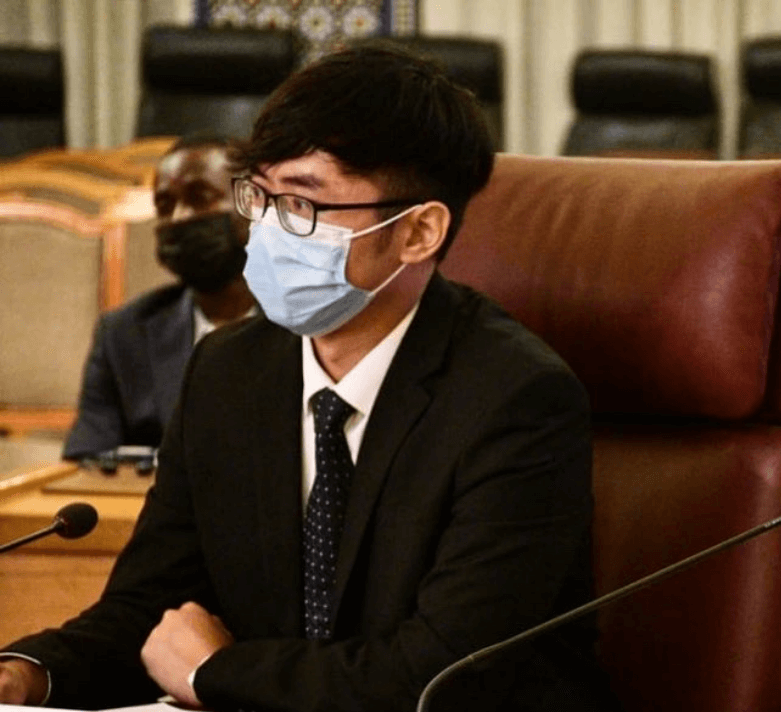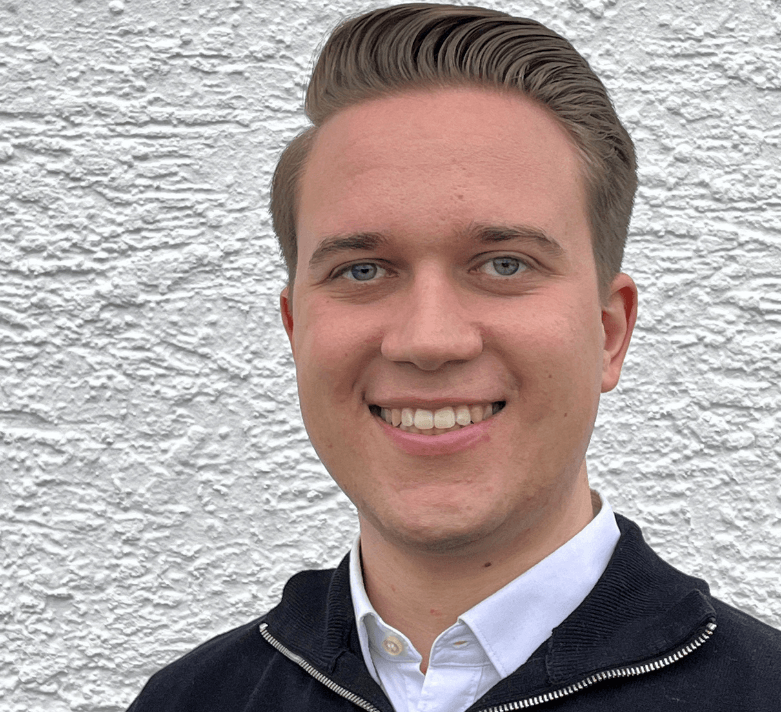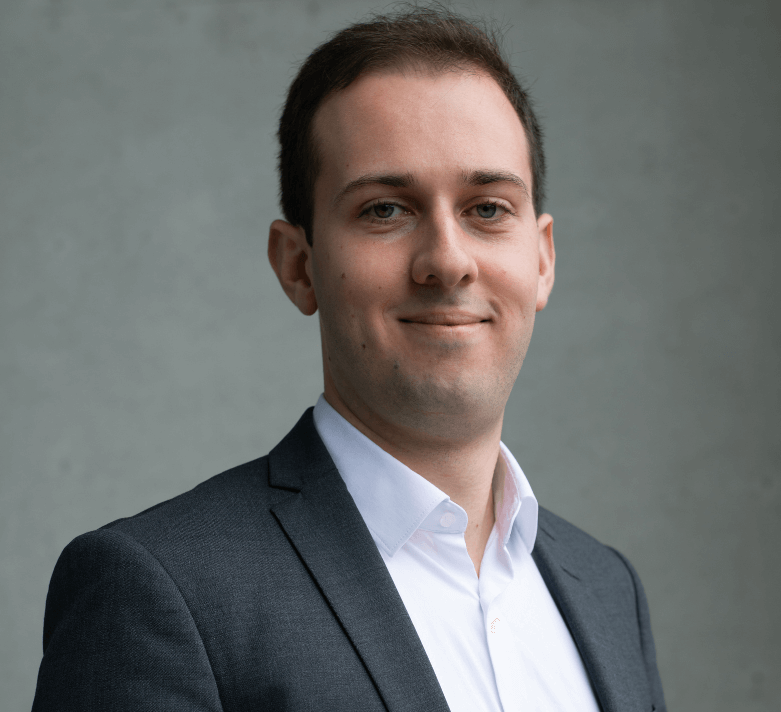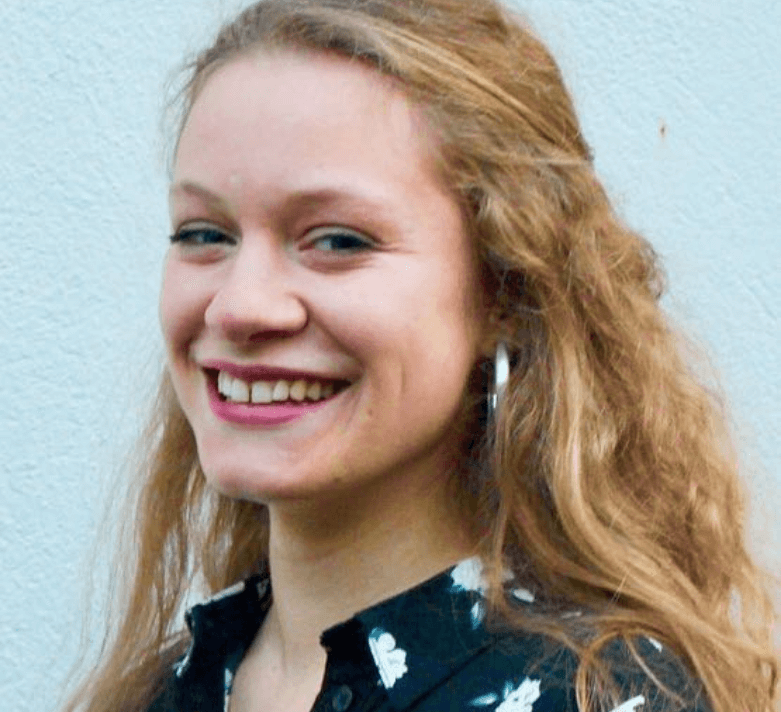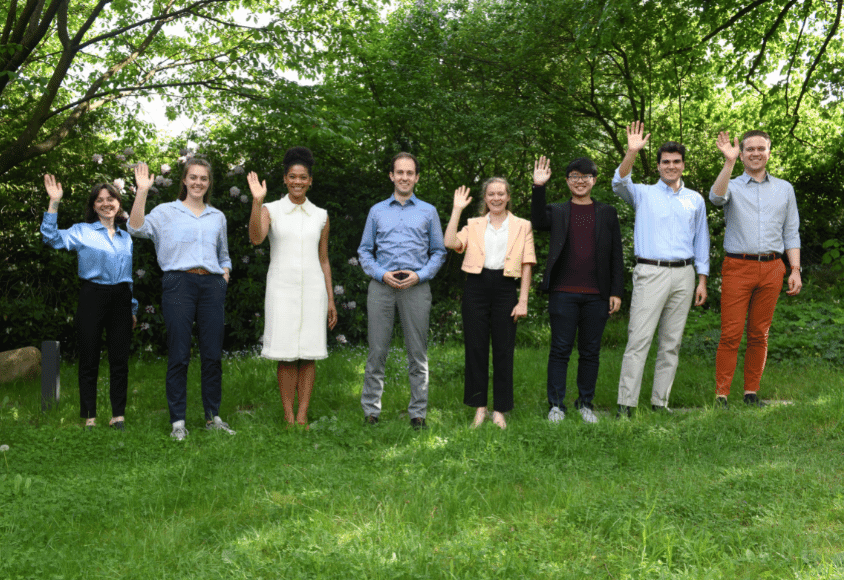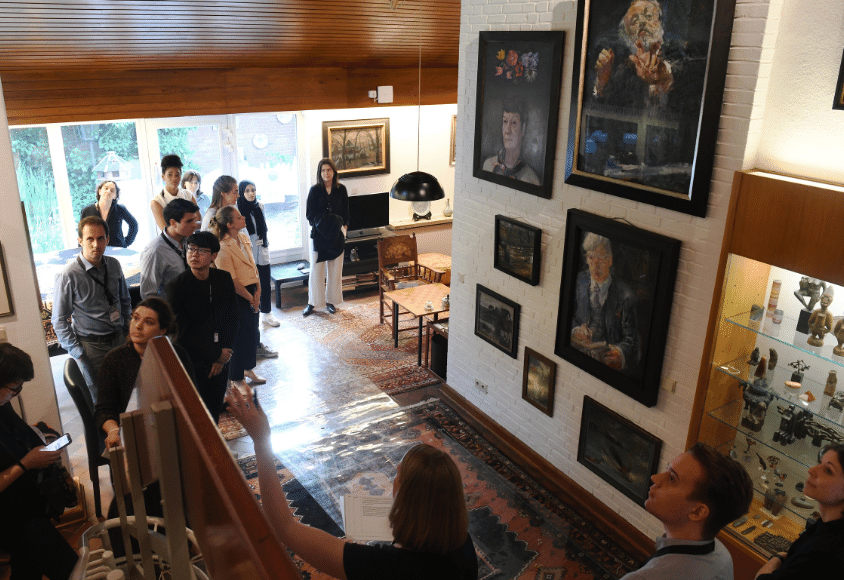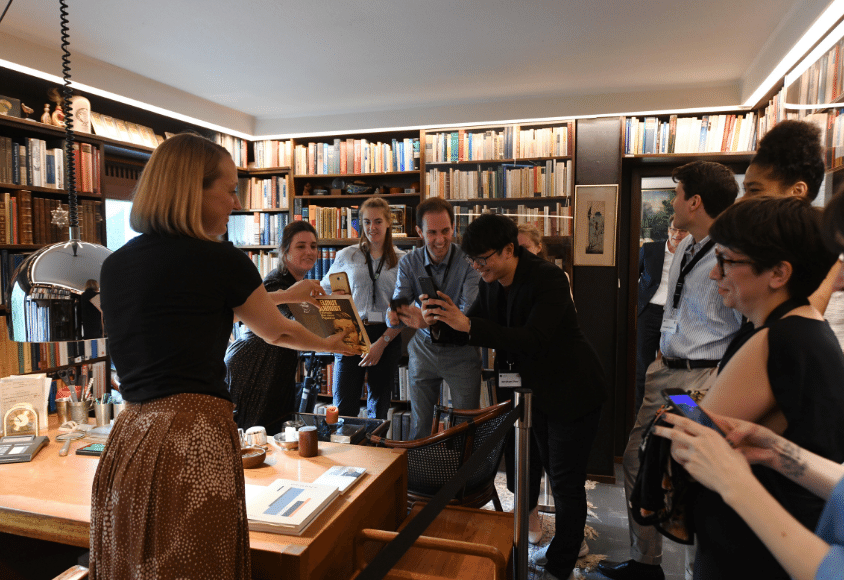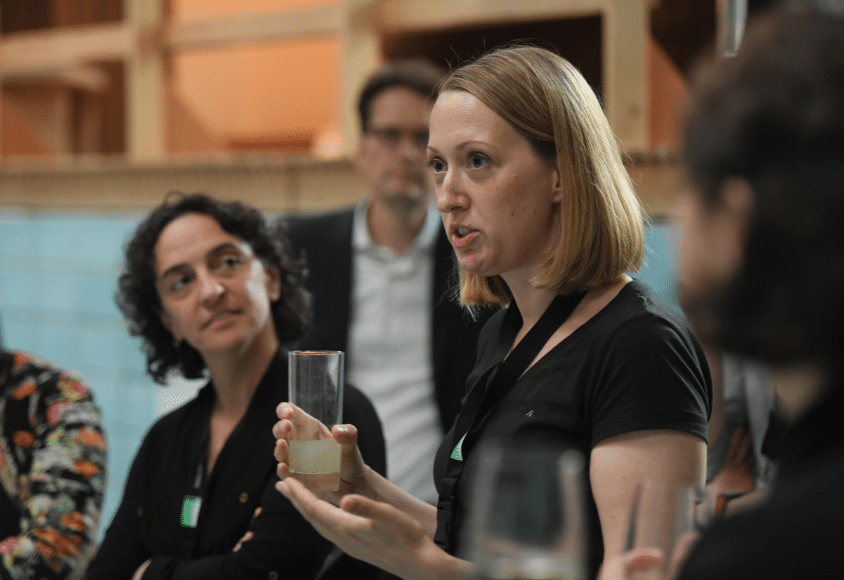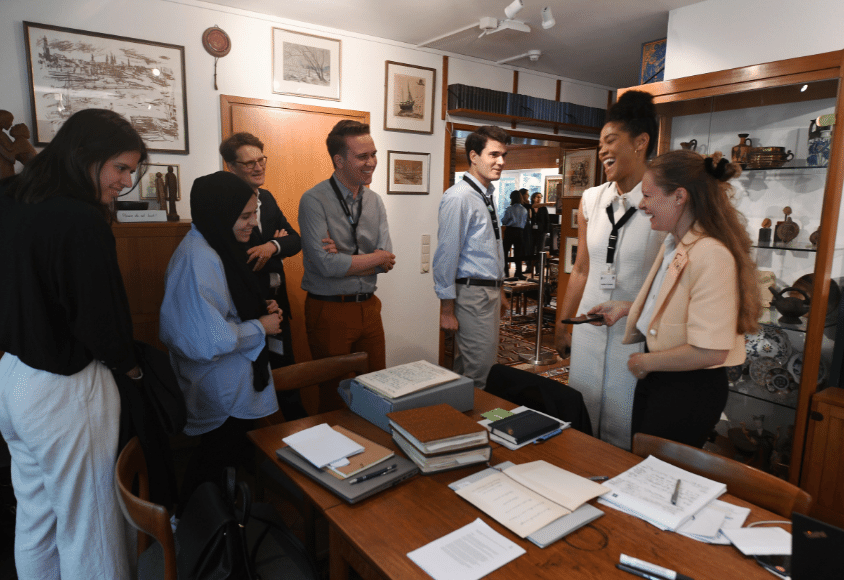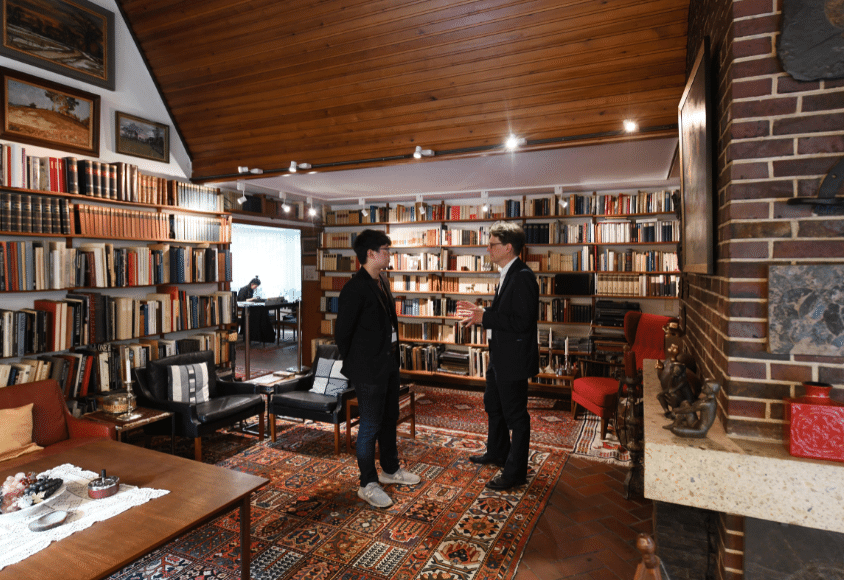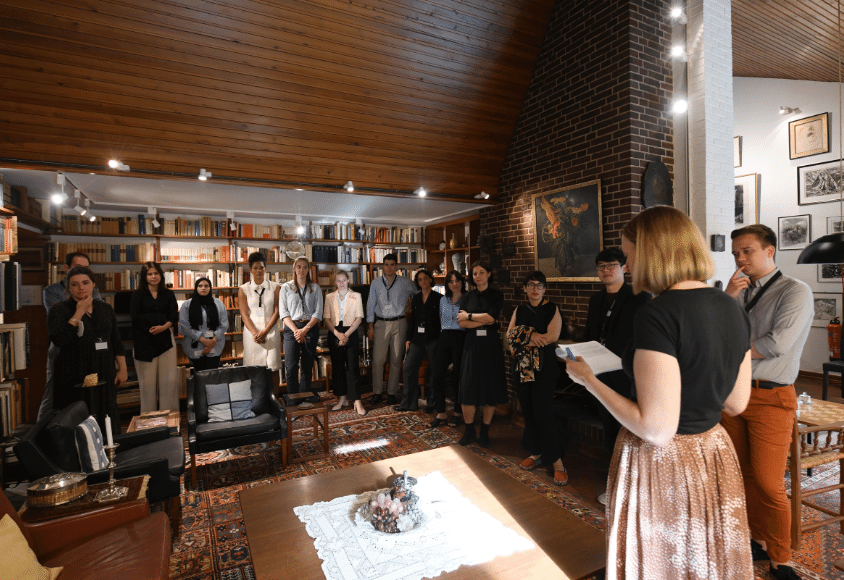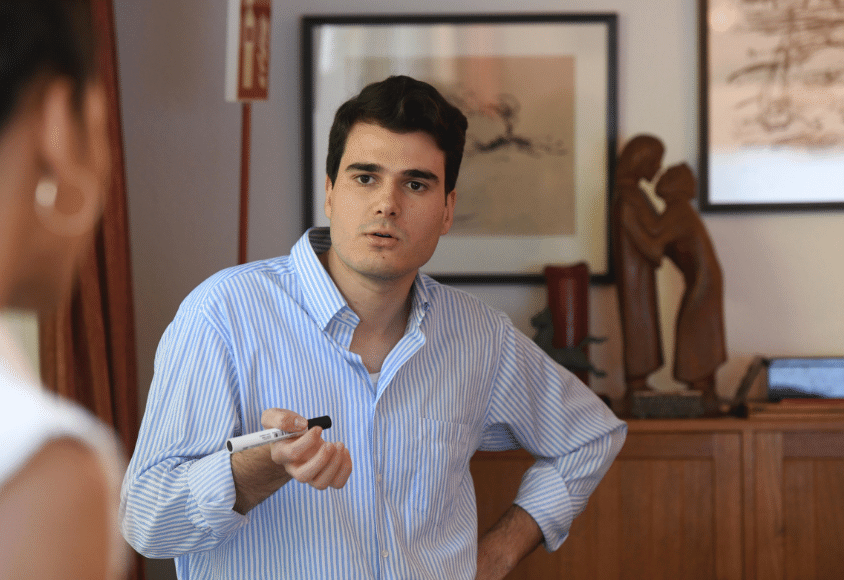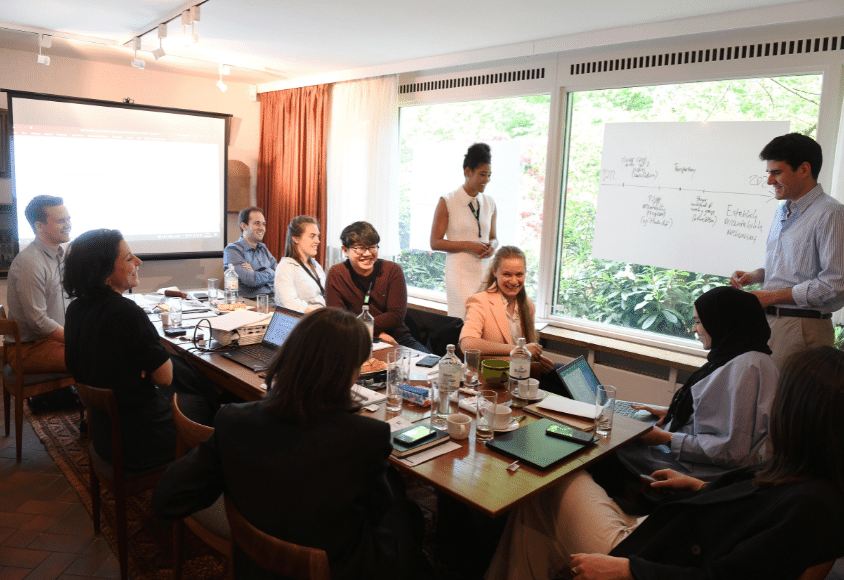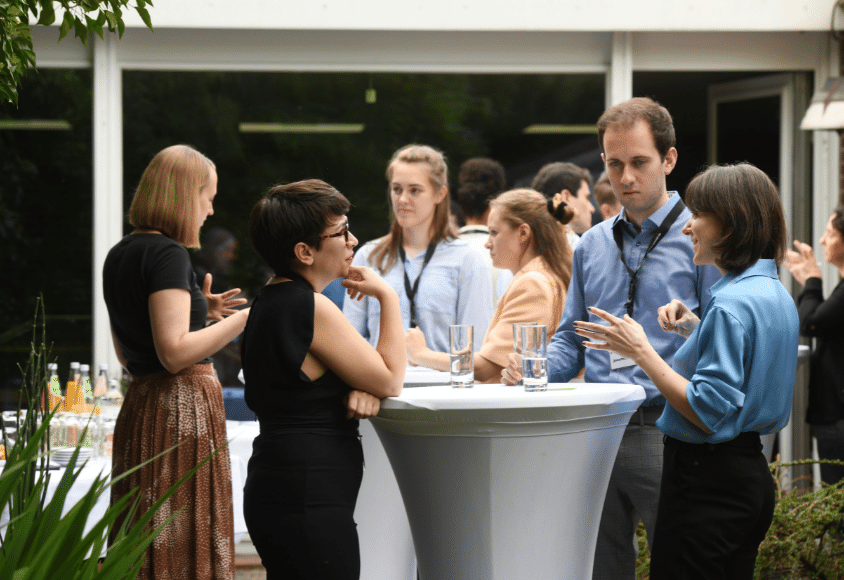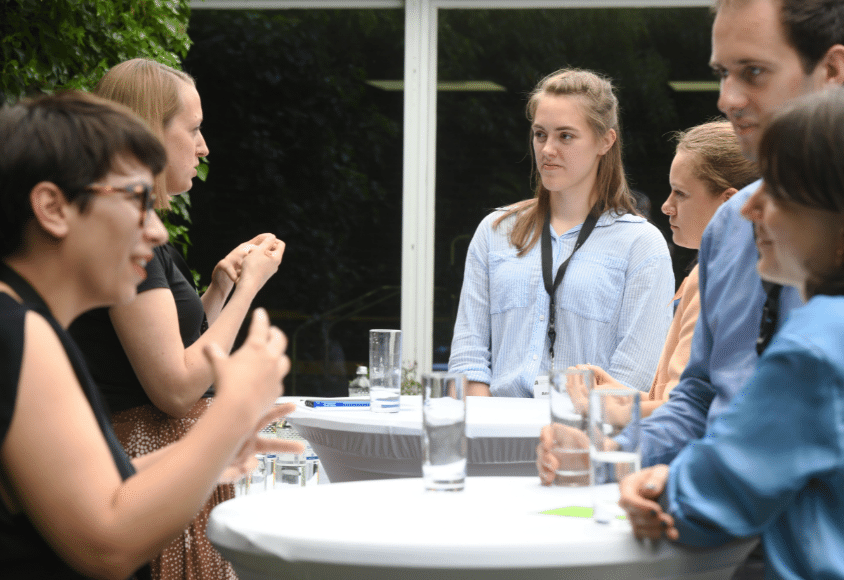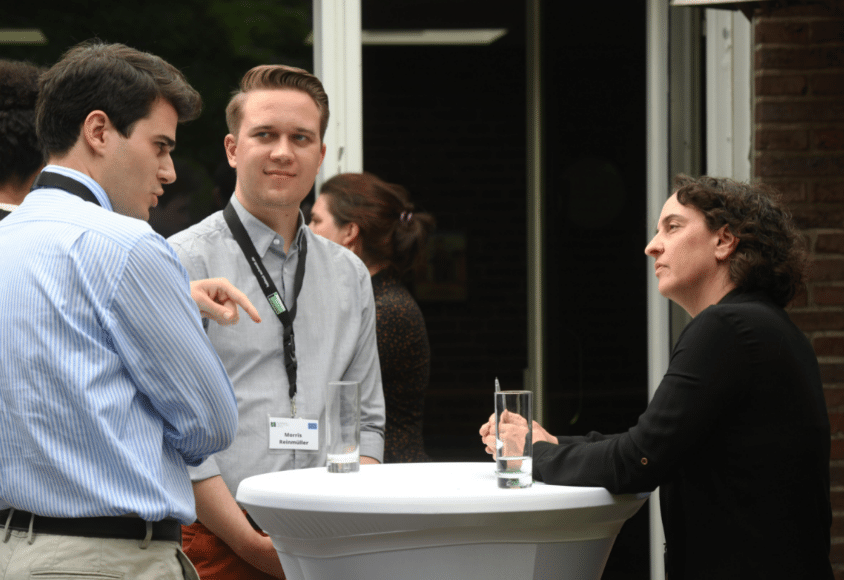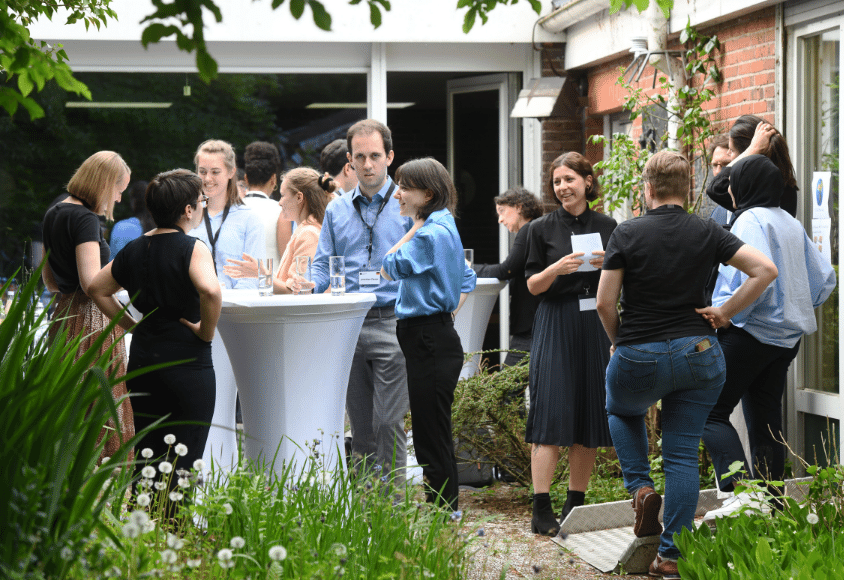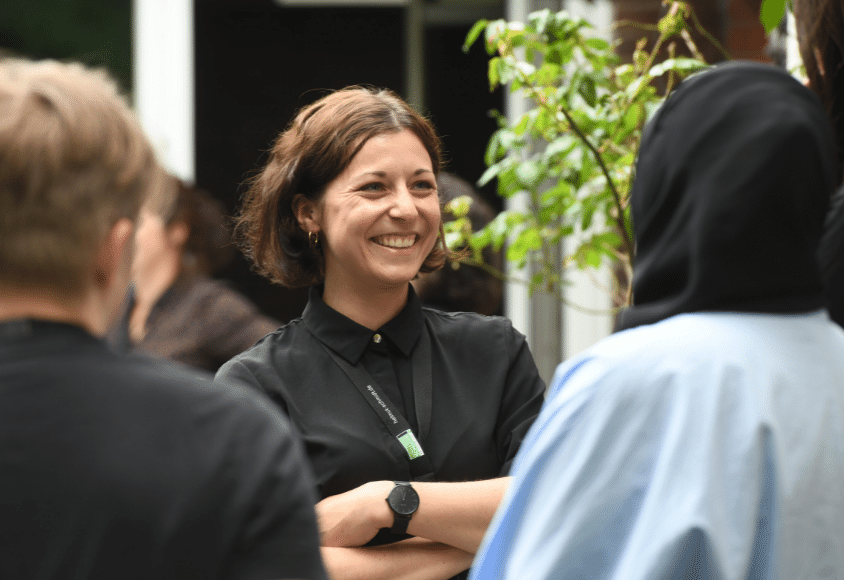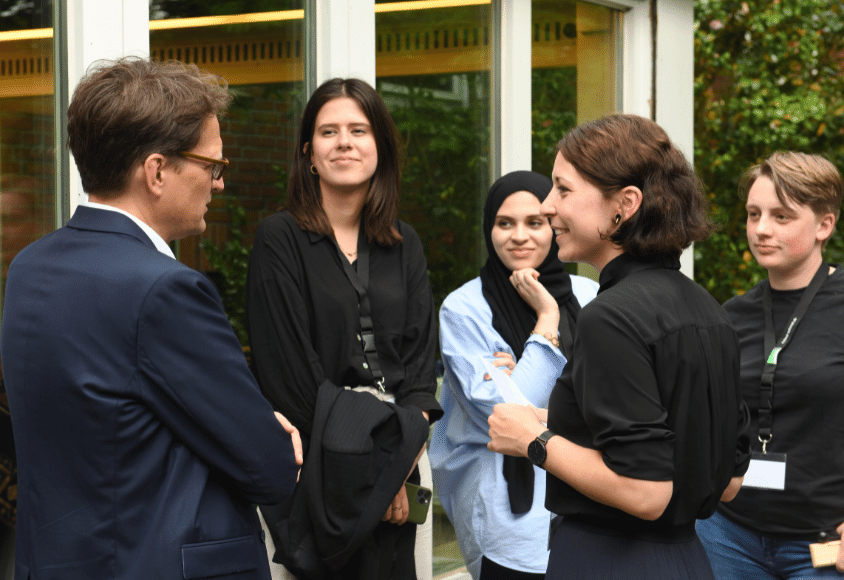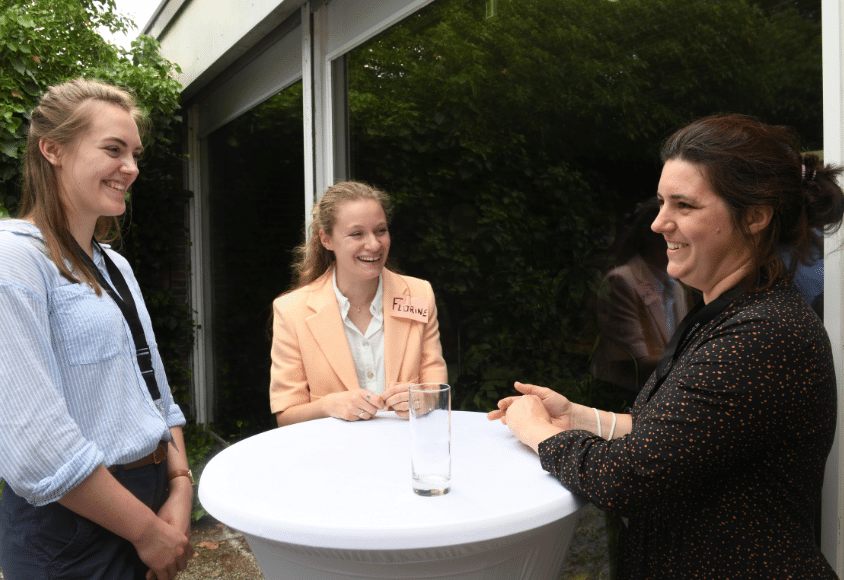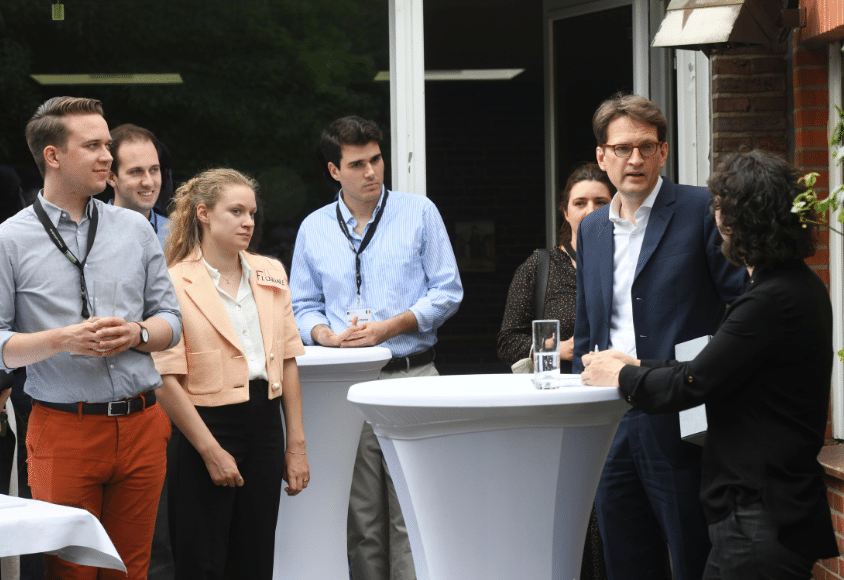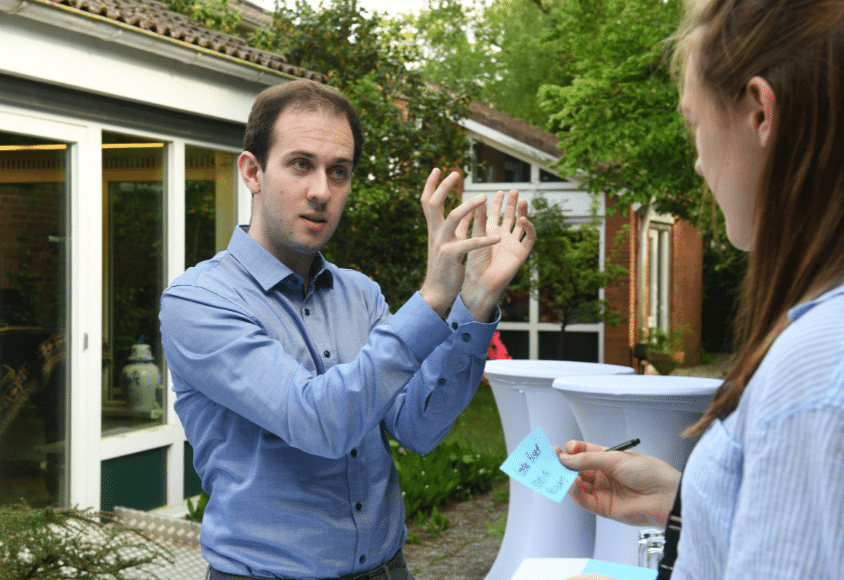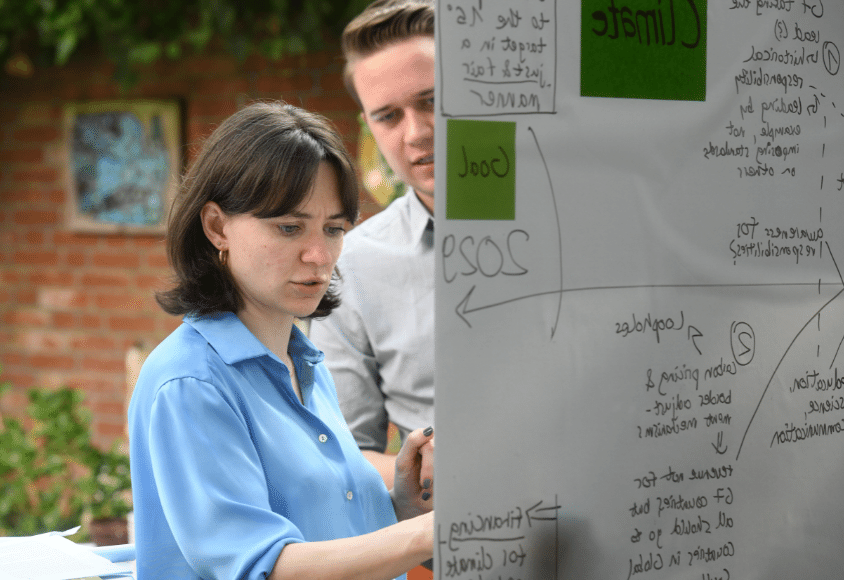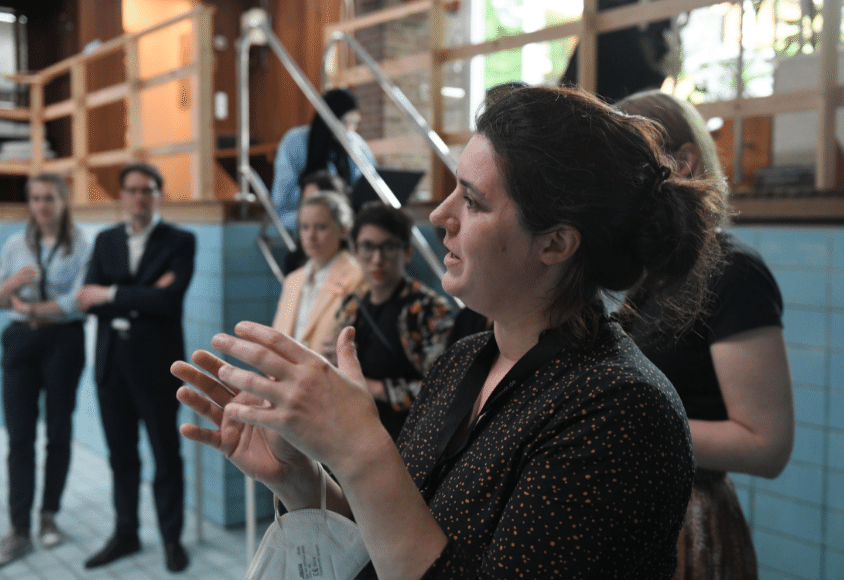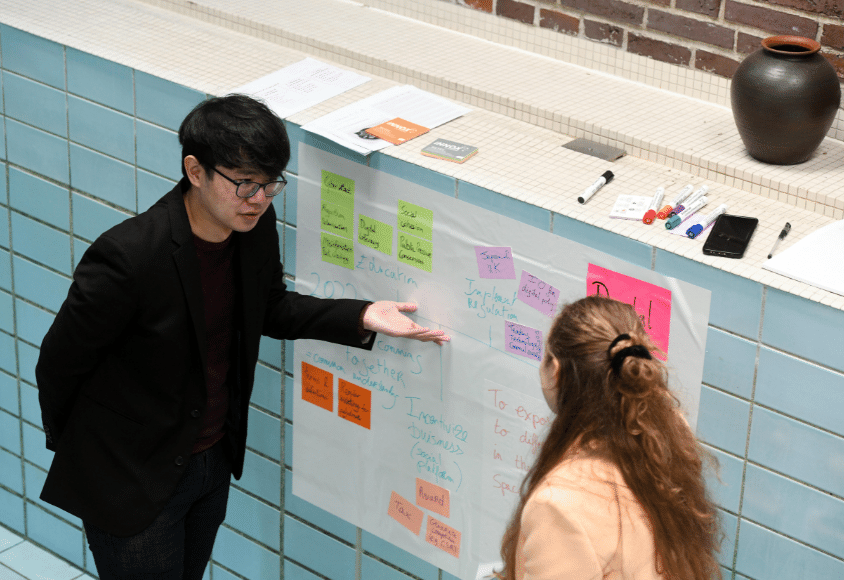Amber Crossen, USA
From Crisis Manager to Agenda Setter: The Next Generation of Leaders Weighs in on the Future of the G7
BKHS NextGen7 Summit, May 17 – 18, 2022 | Schmidt’s house at Neubergerweg
This year, Germany holds the G7 presidency and will host the heads of state and government for an informal gathering in Elmau in June 2022. The Bundeskanzler-Helmut-Schmidt-Stiftung (BKHS) takes this as an opportunity to be hosts ourselves, not for current but for the next generation of leaders. About a month before the G7 summit in Elmau, we invited seven young representatives of the G7 member states to join us for the BKHS NextGen7 Summit. And, similar to the real G7 format, we also invited a host country: a young representative from the Ukraine joined us. From May 17 to 18, 2022, the next generation of leaders met in Hamburg to develop new ideas to transform the G7 from crisis manager to agenda setter.
In 1975, Helmut Schmidt, former German Chancellor and namesake of the BKHS, together with French President Giscard d’Estaing initiated a fireside chat that became the first world economic summit. Their aim was to bring the leading democratic industrial nations together in an informal forum to coordinate international economic policy and to address the mounting global challenges at their time. Today, the G7 members – Germany, France, the UK, Italy, Japan, Canada, and the USA – are again facing a multitude of global crises. And again, the exclusive group meets to shape and lead global policy responses. German Chancellor Olaf Scholz made clear: “We will use our G7 presidency to make this group a pioneer.”
The BKHS NextGen7 Summit not only builds a bridge from history to present, but brings together a group of aspiring leaders to prepare for the future. Building on the main priorities of the 2022 German G7 presidency, together with Elisabeth Winter, our programme director “Global Markets and social Justice”, the summit participants engaged in a foresight exercise to develop concrete policy recommendations to ensure that the G7 accomplishes its main priorities in the fields of gender inequality, climate mitigation, and digital progress until the next Germany G7 presidency in 2029. In addition, the participants discussed how international cooperation beyond the G7 could be like in 2029.
To further improve these recommendations, we invited renowned think tank experts to the BKHS NextGen7 Summit to comment on the policy ideas and give the participants additional feedback to prepare innovative and concrete recommendations. We are particularly grateful that in addition to our in-house expert Dr. Julia Strasheim, deputy managing director and programme director for European and International Politics at the BKHS, we were joined by Rachel Tausendfreund, editorial director at The German Marshall Fund of the United States and vice-chairwomen at the Women in International Security Deutschland e.V. (WIIS), Dr. Miriam Prys-Hansen, lead research fellow and head of research programme “Global Orders and Foreign Policies” at the German Institute for Global and Area Studies (GIGA), and Julia Kloiber, co-founder and managing director at Superrr Lab and Fellow of the Mozilla Foundation.
The policy recommendations are forthcoming as a compilation in our first 2022 issue of BKHS Perspective, our own policy brief series (in German: BKHS Blickwinkel). The publication will be disseminated to decision-makers involved in this year’s G7 process.
Honoring Helmut Schmidt and the importance he ascribed to informal policy discussions, we hosted most parts of the BKHS NextGen7 Summit at the former home of Loki and Helmut Schmidt in Hamburg Langenhorn. The summit participants therefore got the chance to intensively and informally exchange views in a historically inspiring environment. Together with our experts, the participants also toured the house and learned about the many occasions Helmut Schmidt invited statesmen to his home.



